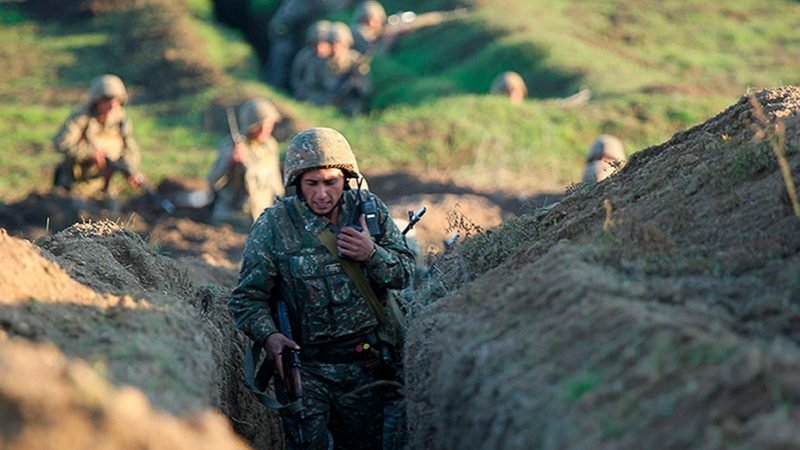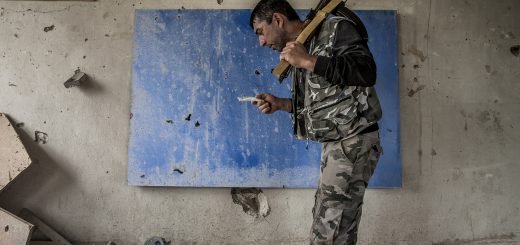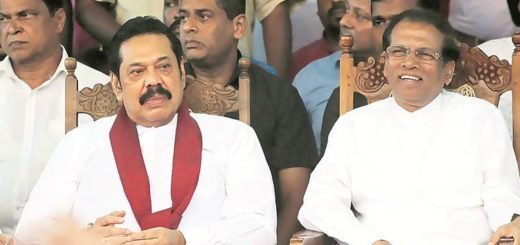Belligerence between Armenia-Azerbaijan: In conversation with Ruben Elamiryan

The belligerence between Armenia and Azerbaijan over the Nagorno-Karabakh region has turned deadly. With casualties reported on both sides, the international community has resorted towards calling a ceasefire. But would that compromise both Armenia’s and Azerbaijan’s ‘right’ over the disputed territory?
Arijita Sinha Roy, Associate Editor at The Kootneeti interviewed Ruben Elamiryan, Chairperson at the Department of World Politics and International Relations at the Russian-Armenian University, Yerevan, Armenia on the current crisis at hand to get an insight of understanding the Nagorno-Karabakh conflict.
.

Question: Armenia and Azerbaijan were part of the former Soviet Republic and the area of Nagorno-Karabakh forms the area of contention between the two. Will you able to shed light on the historical significance of this area?
Ruben Elamiryan: First of all, I would like to make it clear that this is not a war between Armenia and Azerbaijan, but Azerbaijan and Artsakh Republic (Nagorno Karabakh Republic). This is essential to understand the conflict. For instance, if you check the UN Security Council resolutions, you will see that Armenia is asked to be a security guarantor in the region. And this what Armenia is basically doing.
With regard to the essence of your question and reasons for the conflict, probably I will not go back into centuries to show for how long Artsakh was part of Armenia and, what is probably more important, populated by Armenians. Moreover, the situation was the same (approximately 96 per cent of the population was Armenian), when Bolsheviks in face of Stalin decided to grant this piece of land to Azerbaijan, expecting in return Turkish leader Kemal Ataturk to join the “global communist revolution”.
However, when we speak about the reasons, I should emphasize a couple of things:
- Firstly, this is not a war for land, but a war for the right of existence and freedom from need for Armenians of Artsakh. How those people can be part of a country, which heroizes an axe-murder, who on ethnic ground killed a sleeping Armenian officer during the NATO exercises in Budapest. This is a rhetorical question. And I am not even talking about Azerbaijani atrocities during the “April war” of 2016. Even now, they are shelling civilian targets, what is against the international Humanitarian law leaving alone moral as such. We can also recall here Baku and Sumgait pogroms of Armenians by Azerbaijanians in late 80th – early 90th of the 20th century.
- Additionally, check what happened in Nakhichevan, another Armenian-populated land, which found itself under the Azerbaijani rule. They organized “white genocide” on that territories, and now you can hardly find anything Armenian in that part of internationally recognized Azerbaijan.
Just to summarize, in this war Armenians defend their right to exist, and saying “this war”, I mean the Nagorno-Karabakh conflict in general.

Question: Diplomacy between the countries have not really reached any conclusion. What could be the problem areas in negotiation between the two countries?
Ruben Elamiryan: There are several problems, which impede a peaceful resolution of the Nagorno-Karabakh conflict. Firstly, it is the maximalist position of Azerbaijan, which claims that not only Artsakh Republic is the historical land of Azerbaijan (ridiculous, as it was formed only in 1918 after the disintegration of the Russian Empire), but also Armenia. For instance, both during the Key West (Florida, USA) and Kazan (Russia) talks, Armenia, which negotiates the peace deal for the Artsakh Republic, declared that it was ready to sign an Agreement, based on compromise. However, Azerbaijan refused to do that, though it had already provided a preliminary consent. It is another question if Armenia should have agreed for that compromises, but the fact is that it agreed.
The authoritarian regime in Baku is another reason. It lacks legitimacy in its own country and increasing economic crisis only worsen the situation. As a consequence, public consolidation in face of an external enemy is an “old, but gold” trick.
Another very important impediment is the lack of trust among the sides of the conflict. No one is going to compromise not being one hundred per cent sure, that the other side is not going to cheat. But we do not have this atmosphere yet, especially provided that Azerbaijan is waging a war during COVID-19 pandemic.
The internationalization of the conflict and involvement of various players with significantly different interests makes things more complicated. Especially, these days we see increasing involvement of Turkey, which supports Azerbaijan. Given that Turkey is playing a role of an international hooligan, softly speaking, this only fuels the conflict. Moreover, we receive information that it is recruiting and sending Syrian terrorists to fight against Armenia.
Question: According to the reports there are possibilities of Turkey backing the actions of Azerbaijan and also it claims Russian backing to Armenia. How you see this? Is there any possibilities of another proxy between Russia & Turkey?
Ruben Elamiryan: I have already touched upon this in the previous question. It is obvious that Turkey is clearly and unilaterally supporting Azerbaijan. With Russia the situation is different. It tries to balance between Armenia and Azerbaijan, having strong interests with both countries. So, these days we do not see unanimous support from Russia for Armenia. However, given that Armenia is a full Russia-led Collective Security Treaty Organization’s member, Russia has its only military base in the region in Armenia, and Russia considers the South Caucasus as a region of its major interests, the growing Turkish influence in this region might lead to another proxy between Russia and Turkey.

Question: Former Vice President Joe Biden said in a statement that hostilities could escalate into a wider conflict and urged the Trump administration to push for more observers along the ceasefire line and for Russia “to stop cynically providing arms to both sides”. Would you like to agree to Joe Biden’s statement and how far can Russia alter the scenario of conflict between Armenia and Azerbaijan?
Ruben Elamiryan: There are two parts in this question: first considers the larger US engagement, the second one is about the role of Russia.
What about the US role? Clearly someone should stop Erdogan, as for Armenia it would be enormously complicated to do that alone. Additionally, provided Erdogan’s ambitions, the international community should stop him to be the next Hitler, as everything the Second World War also started with “small” annexations. And here the US can have a crucial role. I would even say, having the decisive role in stopping the Nazi Germany, Russia and the US can unite forces to stop now Erdogan.
When it comes, to the Russia’s role, it is not a secret, that Russia is selling military hardware to both Azerbaijan and Armenia. It is another question, how far Russia can alter the conflict. No doubt, it has strong leverages on the sides, but after the war started, it begins acquiring its own logic and destiny, very often very unpredictable.
On the other hand, the Armenian sides are tired of ongoing provocations from Azerbaijan, which should be stopped at some point to guarantee long-term stability in the region.
Question: Recent flare between Armenia and Azerbaijan has called the attention of the global community including the United Nations. Do you think that the resolution for peace lies in internationalism and not regionalism?
Ruben Elamiryan: The conflict is internationalized probably from the first day, the conflict started. It is enough to check the negotiation framework to make an opinion. The Minsk Group Co-Chairs, which lead the negotiations, include Russia, US, and France (presenting the EU). So, it is fully internationalized. On the other hand, we cannot ignore the role of Turkey in this conflict. Iran is another important player. Thus, we see, a combination of internationalism and regionalism in this conflict, which makes its resolution so complicated.

Ruben Elamiryan, PhD is Head of the Chair of World Politics and International Relations at Russian – Armenian University. He can be further reached out at rub.elamiryan@gmail.com


















